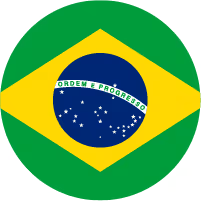Causes of Motorcycle Accidents
Motorcycle accidents are caused by the same reason as two-vehicle passenger accidents, for the most part. However, since motorcycles are smaller, they’re even easier to miss—making them even more vulnerable to negligent drivers. Common causes of motorcycle accidents include:
- Distracted drivers: It only takes a few seconds of driving while distracted and looking away from the road to cause an accident. Drivers who text, daydream, or don’t check their mirrors frequently can and likely will cause an accident.
- Drunk or high drivers: Driving while impaired causes a severe decrease in judgment, reaction time, and decision-making skills. Impaired drivers may drive on the wrong side of the road, follow too closely, run lights or stop signs, or speed. Because of impaired vision, they may not even see a motorcyclist they’re about to hit.
- Inexperienced drivers: New drivers don’t have as much experience checking their surroundings and may maneuver in ways that put bikers in danger.
- Speeding and aggressive driving: Speeding drivers cause accidents because they don’t have enough time to adapt to changes in traffic. Aggressive drivers may make unsafe maneuvers simply because they’re annoyed or angry.
- Following too close: When drivers follow a motorcyclist too close, they reduce the time they have to react to changes in traffic. If they don’t have the time to stop when a motorcyclist stops abruptly in front of them, they’re likely to cause a rear-end accident.
- Improper lane changes: Improper lane changing is often a result of another problem, such as inexperience, aggression, or an impaired driver. If a driver doesn’t check before changing lanes or attempts to speed up and change lanes in any way, they could sideswipe a motorcyclist.
- Car-door opening: If a driver is parked on the side of the road, and they don’t check, they may open their door to a motorcyclist. Or open it without giving the motorcyclist enough time to change course.
- Left-turns: At left-turn yields, drivers may fail to see an approaching motorcyclist. If the motorcyclist doesn't have time to change course, they could hit the side of the vehicle head-on, or the front of the vehicle could hit their side.
Injuries Caused by Motorcycle Accidents
Injuries from motorcycle accidents often lean more severe because of the lack of protection for riders. They may occur when a rider is thrown from the bike or pinned between another vehicle or an object. Because of this, injuries are more common in the extremities and mid-section. However, when thrown from a bike, injuries can occur anywhere.
Severe injuries of any type can cause high medical bills, a great change to one’s quality of life, job loss, and much more. While the pain of an injury sits at the forefront, there may be other lifelong consequences. With Osborne & Francis, we’ll be able to help you get compensation for all of your damages, not just your medical bills.
Below you’ll find the most common types of motorcycle injuries and the documentation necessary for your claim:
Head Injuries (e.g., Concussions, Traumatic Brain Injuries)
While it’s not required in Florida, we strongly recommend protective headgear while driving on the roads of Florida. Your injuries can go from few to fatal without a helmet. Check out our guide on the best gear here.
Head injuries are among the most severe and life-threatening consequences of motorcycle accidents. These injuries can range from mild concussions to more serious traumatic brain injuries (TBI), which may lead to long-term cognitive, physical, and emotional impairments.
Concussions typically involve temporary loss of brain function, causing symptoms like headaches, dizziness, and memory issues. More severe TBIs can result in permanent brain damage, affecting motor skills, speech, and personality.
Proper documentation of head injuries should include detailed medical reports, diagnostic imaging (such as CT scans or MRIs), notes on symptoms, and any changes in cognitive or physical abilities your medical professional observes.
Spinal Cord Injuries (e.g., Paralysis, Herniated Discs)
Spinal cord injuries are catastrophic consequences of motorcycle accidents, often leading to lifelong disabilities.
These injuries can vary in severity, from herniated discs, which may cause pain, numbness, and mobility issues, to complete or partial paralysis depending on the location and extent of the damage.
Paralysis, whether paraplegia (impacting the lower body) or quadriplegia (impacting all four limbs), can severely impact a person's quality of life, requiring long-term care and rehabilitation.
Documentation of spinal cord injuries should include comprehensive medical records, diagnostic imaging (such as MRIs or X-rays), detailed neurological assessments, and records of ongoing symptoms and treatments.
Internal Injuries (e.g., Organ Damage, Internal Bleeding)
Internal injuries are serious and often life-threatening consequences of motorcycle accidents, as they involve damage to vital organs or internal bleeding that may not be immediately apparent.
These injuries can include damage to organs such as the liver, spleen, kidneys, or lungs. This may lead to complications like internal bleeding, which requires prompt medical intervention.
The symptoms of internal injuries can be subtle, such as abdominal pain, dizziness, or shock, making them difficult to diagnose without a thorough medical examination.
Proper documentation of internal injuries should include detailed medical evaluations, diagnostic tests like CT scans or ultrasounds, surgical reports if applicable, and notes on symptoms and treatment plans.
Fractures and Broken Bones (e.g., Arms, Legs, Ribs, Collarbone)
Fractures and broken bones are common injuries in motorcycle accidents, often resulting from the high-impact forces involved.
These injuries can affect the arms, legs, ribs, and collarbone. Victims may endure a range from simple fractures, which may require immobilization, to more complex breaks that need surgical intervention with plates, screws, or rods.
Broken ribs can be particularly painful and may lead to complications like punctured lungs.
Proper documentation of fractures and broken bones should include initial X-rays or other imaging studies, detailed descriptions of the fractures, treatment plans, and records of surgical procedures.
Follow-up documentation should track the healing process, including any complications such as infections or delayed healing, and your mobility and function.
Soft Tissue Injuries (e.g., Sprains, Strains, Torn Ligaments)
Soft tissue injuries are common in motorcycle accidents and can significantly impact mobility and quality of life. These injuries include sprains, strains, and torn ligaments.
Sprains involve stretching or tearing of ligaments, while strains refer to injuries to muscles or tendons. Torn ligaments, such as those in the knee, can be particularly debilitating, often requiring surgery and extensive rehabilitation.
Proper documentation of soft tissue injuries should include detailed clinical evaluations, imaging studies (like MRIs or ultrasounds), descriptions of the injury’s severity, and the treatment plan.
Neck Injuries (e.g., Whiplash, Cervical Fractures)
Did you know? March is consistently the worst month for motorcycle accidents in Orlando. It’s important to note how seasonal changes might affect your driving. Click here to learn more about the common causes of motorcycle accidents.
Whiplash occurs when the neck is forcefully whipped back and forth, causing damage to the muscles, ligaments, and tendons, leading to pain, stiffness, and reduced range of motion.
Cervical fractures, or broken neck bones, are more severe and can potentially result in paralysis or other long-term disabilities if the spinal cord is involved.
Proper documentation of neck injuries should include a thorough medical examination, detailed imaging studies such as X-rays, CT scans, or MRIs, and specific notes on symptoms, pain levels, and physical limitations.
Pelvic Injuries (e.g., Fractures, Dislocations)
Pelvic injuries are serious consequences of motorcycle accidents and often involve fractures or dislocations of the pelvic bones.
These injuries can be particularly severe due to the pelvis's role in supporting the spine and upper body and its proximity to major blood vessels and organs.
Pelvic fractures can range from minor cracks to complex breaks that may require surgical intervention. Dislocations can disrupt the alignment of the pelvic bones, leading to significant pain and mobility issues.
Proper documentation of pelvic injuries should include detailed imaging studies like X-rays or CT scans, comprehensive descriptions of the injury, and records of any surgical procedures or other treatments.
Facial Injuries (e.g., Fractures, Dental Damage, Lacerations)
Facial injuries are a common and often traumatic result of motorcycle accidents, involving damage to the bones, soft tissues, and teeth.
These injuries can include fractures of the facial bones such as the nose, cheekbones, or jaw, dental damage like broken or knocked-out teeth, and severe lacerations that may require stitches or reconstructive surgery.
Facial fractures can lead to long-term issues such as difficulty eating, speaking, or breathing, while dental damage can affect function and appearance. Lacerations may result in significant scarring if not properly treated.
Proper documentation of facial injuries should include detailed clinical evaluations, imaging studies like X-rays or CT scans to assess fractures, dental assessments, and descriptions of any lacerations or soft tissue damage.
Record treatment plans, including surgical interventions, dental repairs, and cosmetic or reconstructive procedures.
Psychological Injuries (e.g., PTSD, Anxiety, Depression)
Psychological injuries are often overlooked but are significant consequences of motorcycle accidents. These can include post-traumatic stress disorder (PTSD), anxiety, depression, and other mental health conditions that can profoundly impact a person’s quality of life.
PTSD may manifest as flashbacks, nightmares, or severe anxiety related to the accident, while depression and anxiety can result from the trauma, physical injuries, and the life changes they bring.
These psychological injuries can lead to difficulties in daily functioning, relationships, and work, often requiring long-term therapy or medication.
Proper documentation of psychological injuries should include a comprehensive mental health evaluation by a qualified professional, detailed notes on symptoms, diagnoses, and the impact on the patient's daily life.
Treatment plans should be recorded, including therapy sessions, medication prescriptions, and any recommendations for lifestyle changes or support groups. Above all, it’s important to approach your lawyer with not only the physical repercussions of your crash but the emotional and psychological ones as well.
Driving a motorcycle can be dangerous, and when it is, it often results in life-changing injuries for the riders involved. If you have been injured in a motorcycle accident, an experienced lawyer can provide a strong legal strategy to help you seek the compensation you deserve.
Our team of highly skilled attorneys at Osborne & Francis has extensive experience representing motorcycle accident victims with unwavering dedication and compassion. Contact us online or call (561) 293-2600 for personalized legal care focused on your health and recovery.
Understanding Unfair Motorcycle Bias
Motorcyclists are stereotyped, and seen as thrill-seekers and adrenaline junkies. These biases can stem from Florida’s laws, the specific nature of motorcycle accidents, and the local legal environment. Here are some of the key legal issues:
- Personal Injury Protection (PIP): Florida operates under a no-fault insurance system, meaning drivers typically turn to their insurance for compensation after an accident, regardless of fault.
- Medical Bills and Lost Wages: Since PIP is not mandatory for motorcyclists, they may need health insurance or risk out-of-pocket payments for immediate medical care and lost wages.
- Shared Fault: Florida follows a “pure comparative negligence” rule, meaning that if a motorcyclist is found partially at fault for the accident, their compensation will be reduced by their percentage of fault. For example, if a rider is found 30% at fault, they would only receive 70% of the damages.
- Challenging Fault Assessments: Insurance companies often attempt to assign a portion of the blame to the motorcyclist, arguing that the rider’s actions contributed to the accident. Disputing these claims and proving the other party’s fault can be legally complex.
- Insurance Gaps: Many drivers in Florida are uninsured or underinsured, which can complicate recovery for damages. Motorcyclists should consider carrying uninsured/underinsured motorist coverage (UM/UIM) to protect themselves. Seeking compensation may involve pursuing the at-fault driver personally, which can be difficult.
- Legal Action Against Uninsured Drivers: Pursuing a lawsuit against an uninsured driver may result in limited recovery, as they may not have sufficient assets to cover the damages.
Overcoming this bias requires strong evidence, expert testimony, and effective legal advocacy.
Osborne & Francis Motorcycle Accident Lawyers
The gravity of common injuries from motorcycle accidents emphasizes the importance of finding the right legal team. You’ll need medical support, support for lost wages, and much more.
Our Orlando motorcycle accident attorneys are skilled at evaluating the full scope of your damages, including medical expenses, lost wages, pain and suffering, and property damage, to help you pursue the maximum compensation you’re entitled to.
We can also help protect you from common tactics to minimize claims, such as offering lowball settlements or attempting to attribute fault to you.
Our attorneys will also communicate with the insurance companies, negotiate on your behalf, and, if necessary, represent you in court.
Consulting with our lawyers early on may also improve your chances of receiving a fair settlement and relieve the stress associated with the legal process.
With over $10 million in damages reclaimed from negligent drivers on the road from truck accidents, car accidents, or other personal injury, our Orlando motorcycle wreck lawyer at Osborne & Francis will help you get the maximum compensation you deserve. Use our online contact form or call (561) 293-2600 for a free evaluation of your case.
Proudly Representing Orlando Residents

.avif)

















.avif)


